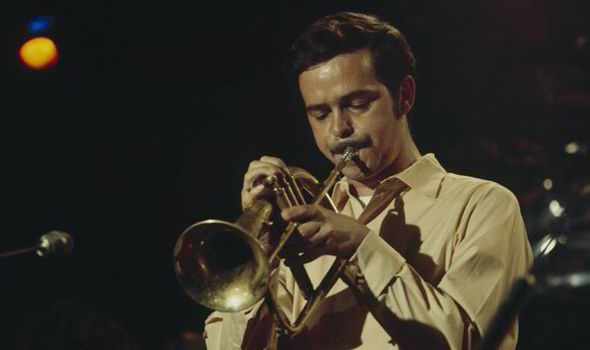KENNY WHEELER :: A DISTINCTIVE MASTER OF THE FLUGELHORN
Kenneth Vincent „Kenny“ Wheeler was born in Toronto on January-14 in 1930. Although Wheeler devoted much attention to composition and wrote all the material that he recorded as a leader, his work as a trumpeter and flugelhorn player is more important. His playing is well-suited to what may be called the house style of the ECM record label; it is clear, relaxed, lyrical, and marked by a wide-ranging harmonic and rhythmic imagination. After studying harmony and trumpet at the Royal Conservatory in Toronto (1950-51) he moved in 1952 to London. He played in English dance bands, and while a member of John Dankworth’s bop orchestra (1959-65) studied composition with Richard Rodney Bennett (1962-3) and Bill Russo (1963-4); with Dankworth’s group he made a recording in 1968 of his own composition Windmill Tilter, a suite inspired by Cervantes’s Don Quixote.
He also played bop in small groups with Tubby Hayes (recording in 1966), Joe Harriott (recording in 1967), and Ronnie Scott (recording in 1968). Around this time he took an interest in free jazz, which he played with many important musicians and groups: the Spontaneous Music Ensemble (1966-70), Tony Oxley (1969-72), Anthony Braxton (at intervals from 1971 to 1973, regularly from 1974 to 1976), the Globe Unity Orchestra (from the early 1970s), the trio Azimuth (from 1976), which also included John Taylor and Norma Winstone, Dave Holland (from around 1983), and his own small group and big band. He also played jazz-rock, in particular on recordings with Mike Gibbs (1969-75) and Bill Bruford (1977), and as a member of the United Jazz and Rock Ensemble (from 1977 to 1982).
Music for Large & Small Ensembles (1990) included the Wheeler compositions ‘Sea Lady’ and ‘The Sweet Time Suite’, the latter his most ambitious extended work for big band since Windmill Tilter. In 1997 Wheeler received widespread critical praise for his album Angel Song, which featured an unusual “drummerless” quartet of Bill Frisell (guitar), Dave Holland (bass) and Lee Konitz (alto sax). Wheeler recorded seven albums with CAM Jazz from 2005 to 2008 but returned to ECM to record his final album, Songs for Quintet, in 2013. Wheeler died after a short period of frail health at a nursing home in London on 18 September 2014.
Kenny Wheeler had what first characterizes a jazz musician: a completely unique sound, an immediately recognizable phrasing, a way of forming the melody that differed from all his peers – in a word: a face of his own. And not only as a wind player with his two instruments, trumpet and flugelhorn, but also as a composer. Kenny Wheeler was one of the most productive jazz composers: he wrote around 200 pieces, many of them absolute gems. Curiously, however, they are not often played by other musicians – perhaps because they are so closely associated with Wheeler’s beautiful trumpet tone.
Video: great BBC documentary of Kenny Wheeler

